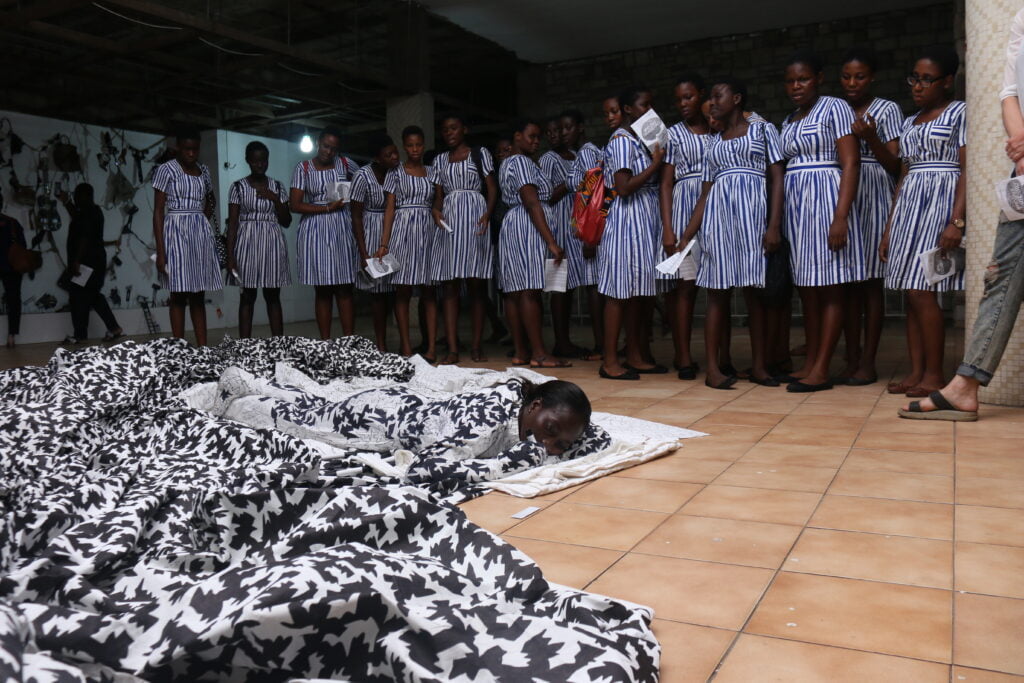
Introducing our new feature TSOTA Around The World where we will be meeting similar cultural collectives from across the globe, each engaging and supporting the arts in their local area through unique and innovative ways. While the pandemic has dealt a significant blow to the arts, it has also brought renewed focus to the importance of creativity and culture in providing a foundation for personal support networks and international togetherness as well as fostering a spirit of hope and a means of escape to new worlds and different realities. Each month we will be introducing you to another organisation who we find inspiring; from Ghana to Mumbai, to the Amazon Rainforest – each bring their own unique methods and insights into the arts while embodying the cross-cultural and universal ethos of cultivating human imagination.
blaxTARLINES KUMASI espouses their pledge of turning art “from commodity to gift”. Describing themselves as an ‘experimental incubator of contemporary art’, the Ghanaian collective has worked since being formally instituted in 2015 to generate a community that actively works to touch every participant with the emancipatory power of art. This ethos is inspired by kąrî’kạchä seid’ou’s Emancipatory Art Teaching project initiated in 2003 at the Department of Painting and Sculpture at KNUST (Kwame Nkrumah University of Science and Technology). Over the past few years blaxTARLINES has led and collaborated on initiatives that have built a network that not only supports the local art scene of Kumasi, but extends internationally, demonstrating that dichotomies of local/global are defunct in a world which is inextricably connected and in which collectivism is essential to thrive; with the arts at the centre.
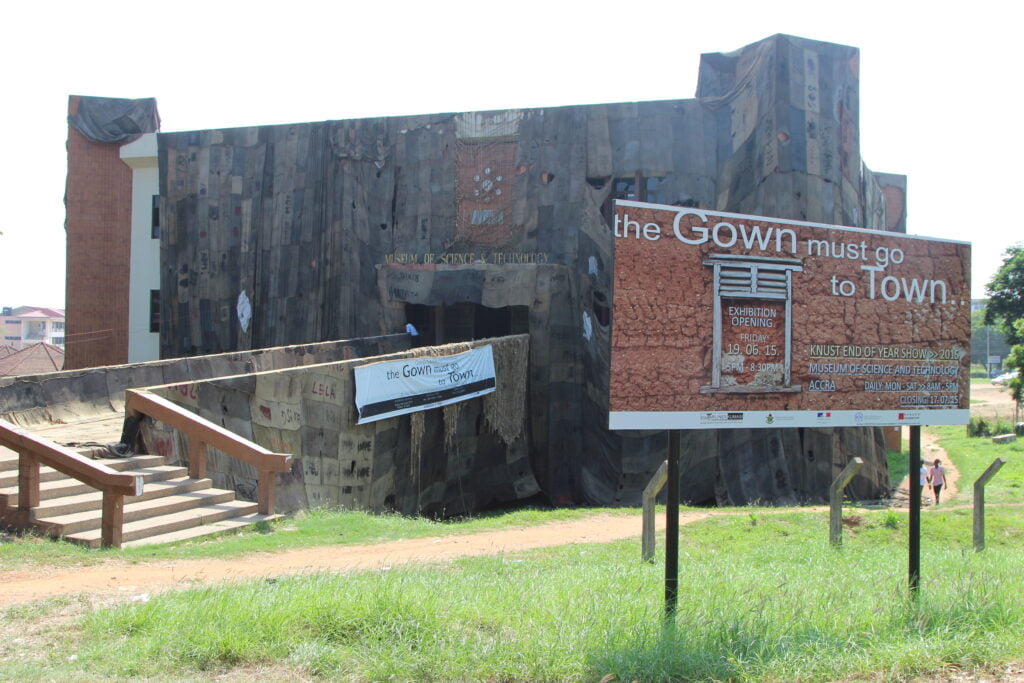
Formed initially to reform the KNUST (Kwame Nkrumah University of Science and Technology) College of Art’s antiquated curriculum , blaxTARLINES has since held 4 groundbreaking end-of-year exhibitions: ‘Silence Between the Lines: Anagrams of Emancipated Futures’ (2015), ‘The Gown Must Go to Town’ (2015), ‘Cornfields in Accra’ (2016) and ‘Orderly Disorderly’ (2017), each defying traditional notions of curating and demolishing the boundaries of exhibiting. In conversation in 2019 at the daadgalerie (studio) in Berlin, Kwasi Ohene-Ayeh (a key member of blaxTARLINES), outlined the importance of universality, emancipation and multiplicity in terms of curatorial and art practices. Exhibitions are free, accessible and aim to be trans-generational as well as trans-cultural; fusing Ghanaian heritage with contemporary manifestations of art and society, while also engaging with global happenings and collaborating with artists both local and international.
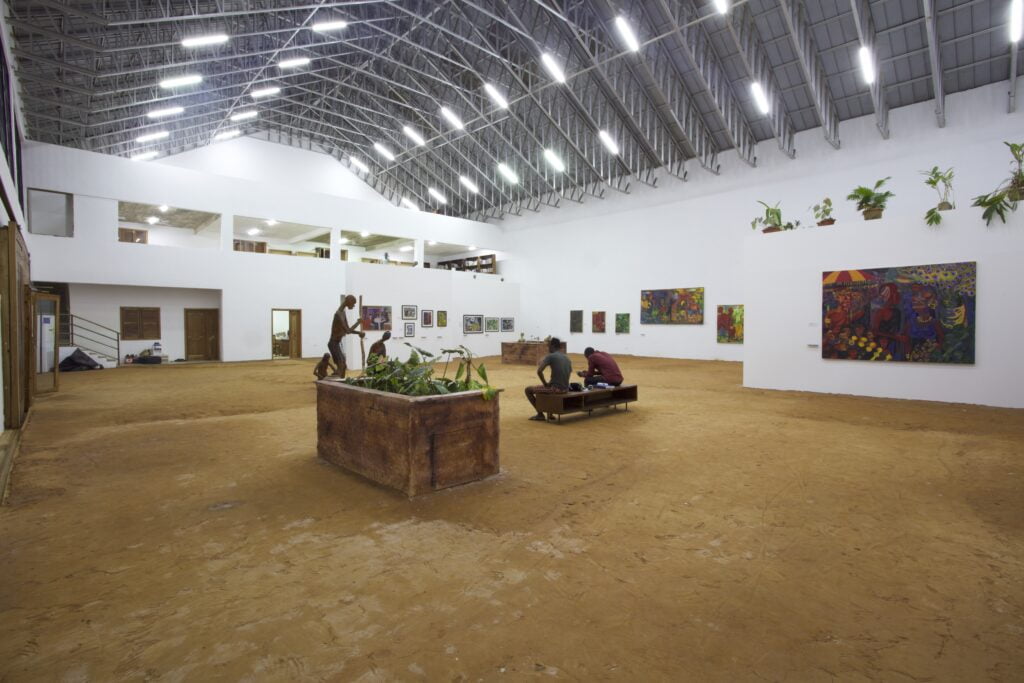
For blaxTARLINES, the exhibition does not simply exist as one site but has the potential to operate on a multitude of levels; an archipelago of the physical, the virtual and the conceptual, combining observing and interacting. Far from passive, the spectator is an integral component to the realisation of the artwork; unlocking meanings and realising purposes. ‘Spectacles. Speculations…’ 2018, curated by Ohene-Ayeh, explored the contradictions and inconsistencies that mediate contemporary experiences as our life and social experiences have been mutated by technology and globalisation. Including electronically powered screen-based works (monitors, wall projections, hanging projections, even visitors’ own smartphones), braille wall texts, sculptural installation as well as theatrical and performative events, the exhibition prides itself in starting the conception of Imaging from the point of multiplicity in which every medium is on an equal plane, thereby allowing every participant to experience the exhibition rid of bias, free to interpret and imagine.
In the wake of COVID-19 systems of global capitalism have come under criticism; their inadequacies highlighted as the pandemic has blighted economies and widened gaps between the wealthy and poor throughout the world. The climate emergency has accentuated and affirmed the dangers of hyper-consumerism as the world’s desire for commodity and profit keeps seeming to trump the crucial need to protect our environment. While many factors and disciplines are required to reverse and find alternatives to such issues, I do believe that the arts can contribute considerably in transcending the appetite for commodity. blaxTARLINES affirms this: situating art within the domain of preemptive equality. As the product of human imagination, art is an ideal point of departure from capital, for if humanity cannot unite through the most common denominator of imagination, how can we? blaxTARLINES demonstrates how art can be used as an educating tool, an emancipatory apparatus and a unifying means. Art is more imperative than ever as not only a method of survival but also one of healing. Yet, blaxTARLINES projects oscillate the interfaces between the non-human, inhuman, human, and post-human.
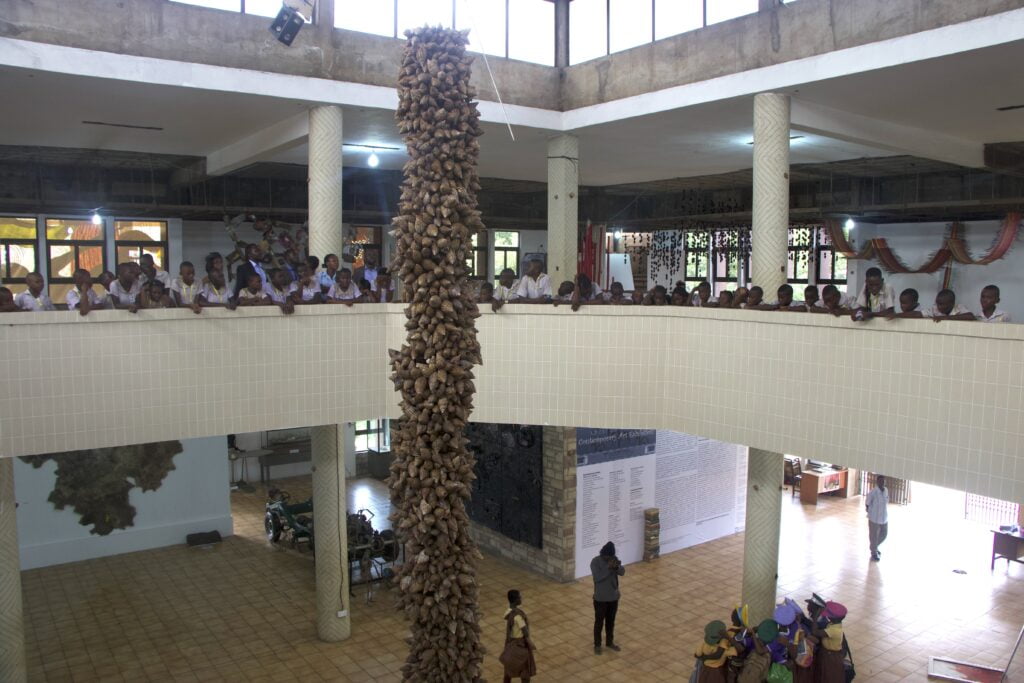
For blaxTARLINES, the artist is not merely a producer, an isolated entity, but an active agent in the life of art; rather producing works to be consumed and aestheticized, blaxTARLINES encourages its artists to act as educators, ambassadors and working to find alternatives to societal issues, local, national and global. One pioneering artist associated with blaxTARLINES is Ibrahim Mahama who was recently awarded the 2020 Principal Prince Claus Laureate. Renowned for his monumental installations of jute sacks sewn together, draped over buildings around the world, Mahama explores migration, commodity and globalisation while fusing with local and individual identities. Refusing to stop at the creation of such provocative works, Mahama is also actively involved in improving social conditions of his local regions; directly addressing the lack of opportunities and facilities by setting up an open access cultural centre, Savannah Center for Contemporary Art (SCCA) Tamale, and other social projects aimed at providing employment, education, studio space and creative activities for his generation and beyond.
The work of blaxTARLINES has created incredible opportunities for the local region to immerse themselves in creativity, bringing people of different ages and cultures together to build a community of equals. Moreover, by committing themselves to an emancipated art practice and continually acting within sites of multiplicity, blaxTARLINES are actively revising traditional art discourses towards one that sees art as a ‘gift’ as opposed to an exclusive contrivance to a money-making entity, controlled by Euro-American hierarchies. We can learn so much from blaxTARLINES’ ethos and methods of curatorship, art teaching and practice.
Filed under: Community
Tagged with: art, art world, artist, artists, blaxTARLINES, collective, commodity, community, consummerism, gift, global, globalisation, grassroots, institution, local, organisation
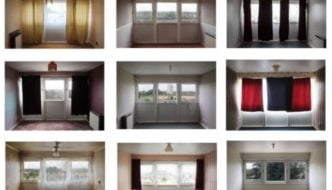
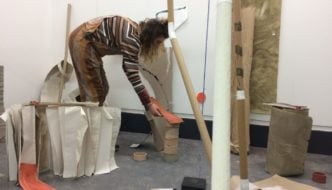
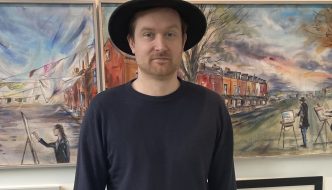
Comments